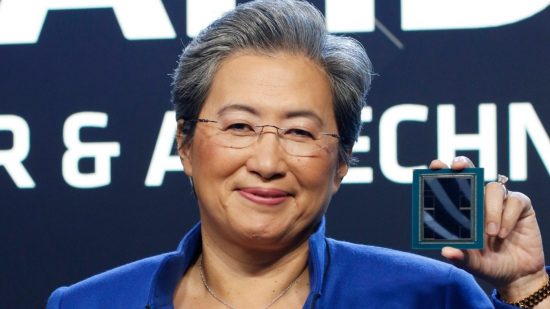Accustomed as many are now to using cloud-based artificial intelligence services like ChatGPT, we will soon be living in an era of AI PCs should companies like Microsoft have their way. While this future may make some understandably skeptical or, worse, uncomfortable, AMD chair and CEO Dr. Lisa Su is “absolutely sure” that in time everyone will want an AI PC.
Truth be told, the dawn of the AI PC is already upon us, with the best gaming laptops already sported neural processing units (NPUs) to enhance local AI workloads. However, there are currently only four desktop processors on the market equipped with NPUs, but it shouldn’t be long before more arrive from both AMD and Intel.

“As the technology gets better, I am absolutely sure that everyone is going to want an AI PC,” Lisa Su claims in an interview with CNBC at South by Southwest (SXSW). These comments come shortly after an onstage interview at the conference, in which Su talked more in-depth about artificial intelligence.
“I’d like to see everybody have an AI PC,” Lisa Su says during the ‘Fireside Chat’ keynote at SXSW. “That’s not going to happen this year, but it will start this year and over the next couple of years you’ll see it throughout product portfolios.”

What even is an AI PC? Su defines this as “the idea that everyone can have their own AI capability,” specifically referring to the ability to run AI applications locally in place of cloud services like ChatGPT or DALL·E. She highlights that, equipped with an AI PC, we all stand to become “more productive” as a result, and goes so far as to claim that “companies that learn how to leverage AI are going to win over companies that are not leveraging AI.”
Much as Su has a vested interest in seeing the AI PC take off, she does admit that artificial intelligence in its current form has its shortcomings. “AI is not perfect, we’re all learning along the way. Every day I’m learning new things about what the technology can do.”
This speaks to the relative infancy of our understanding for how AI can be used to improve existing tools or methods of operation, be it for work or play. After all, the likes of AI-powered upscalers like DLSS have only existed for five years, while mainstream curiosities like GPT-4 are younger still as the language model took the world by storm just last year. Even so, AI shows no sign of going away anytime soon.
The ethics of generative artificial intelligence remain an uncomfortable sticking point, but AI has clearly proven its usefulness in other ways. Even AMD is planning to finally leverage deep learning for its next version of FideltyFX Super Resolution, according to recent rumors, following years of using traditional methods.
For now, like most, I remain skeptical about whether I need an AI PC but it only takes one application to shift the scales from skepticism to enthusiasm. In my mind, the question is not if I and others will want an AI PC but instead how will my opinion change and when will this happen? Suffice to say, I look forward to the release of Zen 5 CPUs both as a gamer but also as someone curious to see if these chips hold a glimpse of the AI PC future.
